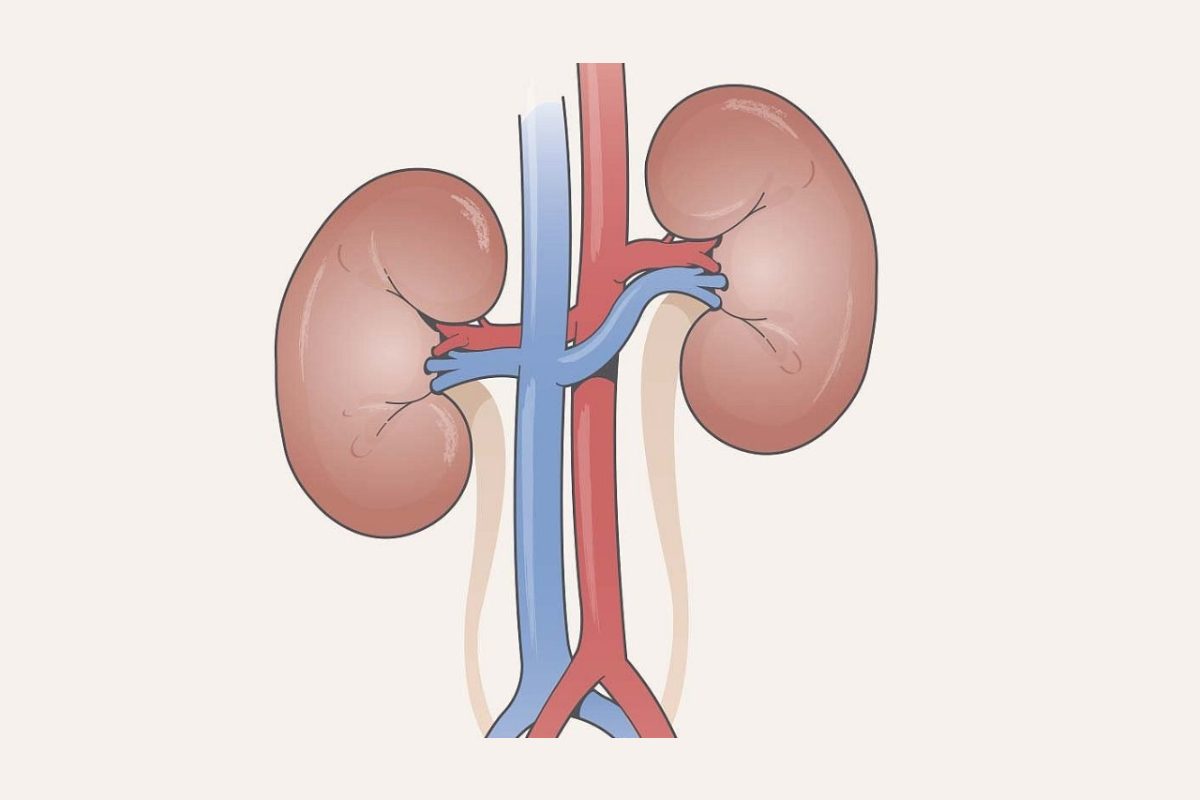Table of Contents
Kidneys Introduction
The kidneys are vital organs that perform cleaning functions, blood chemical balance, and hormone production.
It knows how the kidneys work can help us keep them healthy.
The kidney, bladder, and ureter are the parts of the urinary system. Kidneys are in pairs and have the shape of a bean, and its size is about a child’s fist. That is situated in the abdominal cavity, which is present around the waist.
The right kidney rests just below the liver and the left below the diaphragm, and next to the spleen, the right kidney being slightly lower than the left.
The kidney of adult measures approximately: Length: 13 cm; width: 8cm; thickness: 3 cm, weighing about 150 grams each.
The Kidneys: Blood Purifiers
Considered complex purification machinery, they have the function of both elimination and instruction of internal liquids. They excrete water; then they also conserve it; eliminate through the urine all the foods of food metabolism that can be potentially harmful before they reach toxic levels and return to the blood: water, glucose (sugar), salt, potassium and many other vital substances in the quantities adequate to keep the internal environment stable despite variations in climate, diet and other exterior issues.
The anatomical part that completes this function is the nephron which contains a “filter” called the glomerulus, which, in turn, includes a network of tiny blood vessels called capillaries. We have more than 2 million nephrons made up of those microscopic filters and tubules that would cover more than 80 km if extended one after the other.
A complicated exchange of chemicals occurs there so that waste and extra water leave the blood and arrive in the urinary system. It is not a simple filtering procedure; it is more complex where a circle of reabsorption and then excretion can also be carried out. After cleaning, the combination of unused and chemical materials is “studied” with the aim of “recovering” (through a reabsorption process) those that could still be useful.
This urine is transported involuntarily and continuously to a funnel-shaped cavity (renal pelvis). It passes to the ureters that lead it to the bladder, where it accumulates, and from where it is eliminated through the voluntary act of urination.
Despite being so small, the process and purify all the blood every 50 minutes, filtering around 180 liters of liquid per day, of which only 1.5 liters are eliminating as urine. An adult needs to produce and excrete at least a third of this amount to eliminate waste products from the body properly.
The waste in the blood is formed from the breakdown of food eaten. The kidney’s role is to remove waste, but if it does not, it harms the body and spreads in the blood, leading to danger to our bodies. Peeing less or more can be a symptom of the disease.
What does Normal Urine Contain?
The chemical composition varies according to the type of food, the water ingested and the amount of urine. The average weight of urine in one litre urea is about 24g, Creatinine: 0.9g; Ammonium salts: 0.7 g; Sodium chloride (common salt): 10 g; Sulfates: 3g; Phosphates: 2.3 g; hippuric acid: 0.6 g; Uric acid: 0.5g; Other compounds: 4 g.
Normal urine is acid-free as it does not have bacteria, fungi, or viruses. If your urine consists of blood cells, red blood cells, and protein, it indicates injury existence. Or you may have inflammation or infection in the kidneys. And found that glucose in urine results in diabetes.
Why do Kidneys Fail?
Almost all kidney diseases attack the nephrons and make them lose their filtering and reabsorption capacity, which leads to alterations in the concentrations of the different products in the blood and urine.
Injury to the nephrons can happen rapidly, often resulting from injury or poisoning. It may be many years before the damage becomes apparent. But nearly all kidney diseases destroy the nephrons slowly and quietly.
There are two common diseases of the kidneys: hypertension and diabetes. But it may also have hereditary and congenital conditions and also trauma or infection. The immune system can also affect the functioning of the kidneys.
Some drugs, especially anti-inflammatories, can cause kidney disorders if taken indiscriminately. Anyone who takes pain relievers regularly should see a doctor make sure their kidneys are not at risk.
Some rare number of people are naturally born with one kidney but can live their lives healthy. Numerous people donate one of their kidneys or transplants to their family or friends yearly.
Are the Kidneys “Blood Cleaners”?
In addition to removing waste, the kidneys release three important hormones:
Erythropoietin : (stimulates the making of red blood cells by the bone marrow): we would suffer from anemia without it.
Renin : (regulates blood pressure indirectly by regulating salt levels in the blood): sometimes, drugs that act directly on this substance are use to control hypertension.
Calcitriol: The active form of vitamin D (to maintain calcium for bones and also, average chemical balance in the body).

